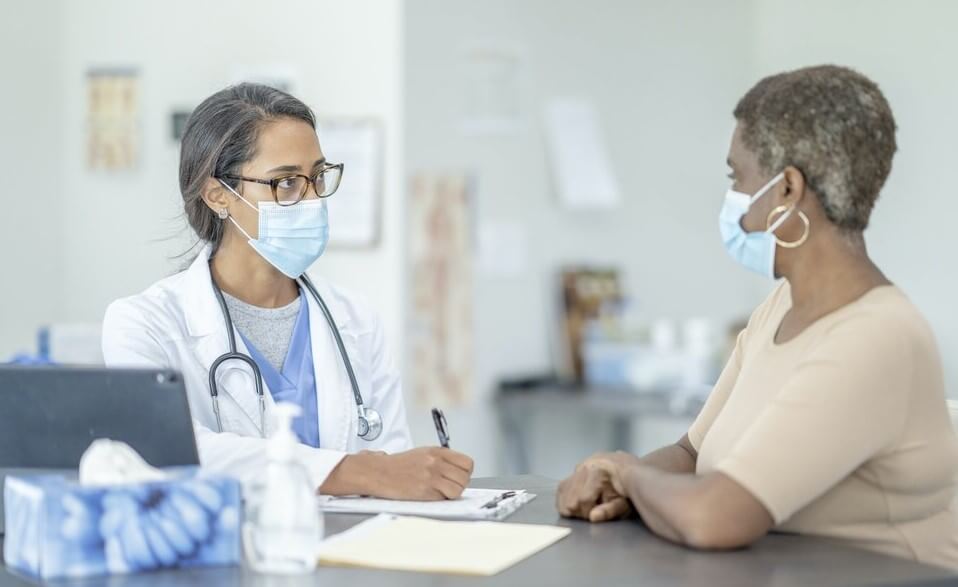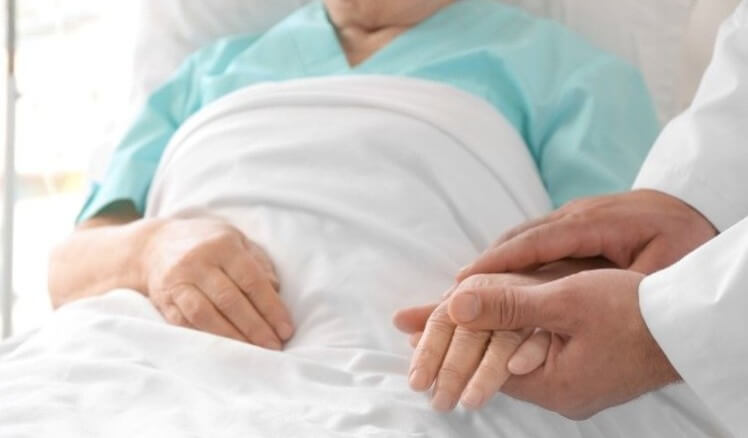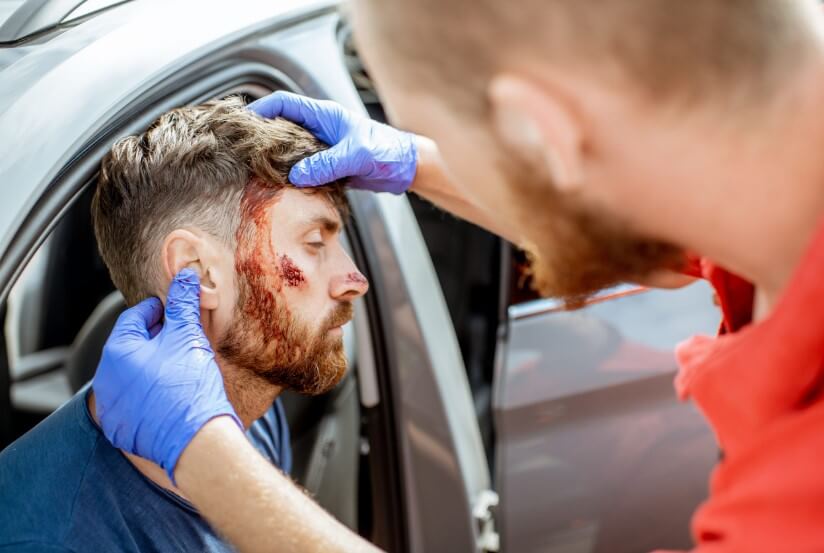Motor vehicle accidents (MVAs) are unfortunately all too common on roads around the world. While they can vary in severity, even minor accidents can result in injuries to the body. These injuries can have a significant impact on a person’s physical and mental health, as well as their ability to carry out daily activities.
Proper recovery and rehabilitation after an MVA is essential to ensure the best possible outcome for the injured party. Recovery may involve medical treatment, physical therapy, and the adoption of healthy lifestyle habits to promote healing and prevent future injuries.
In this article, we will explore the topic of recovering from motor vehicle accident injuries in depth, with a focus on developing and maintaining healthy habits during the recovery process. By following these tips and strategies, individuals can work towards a full and speedy recovery after an MVA.
Seek Medical Attention Immediately

After being involved in a motor vehicle accident, it’s crucial to seek medical attention as soon as possible, even if you don’t feel injured or experience any pain. Some injuries, such as whiplash or internal bleeding, may not present immediate symptoms but can worsen over time without proper medical care.
Common injuries resulting from MVAs include cuts, bruises, fractures, and soft tissue injuries like sprains and strains. In more severe accidents, head and neck injuries, spinal cord injuries, and internal injuries can also occur.
Ignoring or neglecting to treat these injuries can have long-term consequences on a person’s health and well-being. Chronic pain, limited mobility, and decreased quality of life are just some of the potential consequences of untreated MVA injuries. Seeking medical attention immediately after an accident can help identify and treat injuries before they become more serious, increasing the chances of a full and speedy recovery.
Follow Your Treatment Plan
Once you seek medical attention and receive a diagnosis for your MVA injuries, your healthcare provider will typically create a treatment plan tailored to your specific needs. Following this treatment plan is essential to ensure a successful recovery.
Treatment plans may include a combination of medication, physical therapy, chiropractic care, or surgery, depending on the severity of the injuries sustained. The goal of these treatments is to alleviate pain, improve range of motion, and promote healing.
To achieve the best possible outcome, it’s crucial to stick to the recommended appointments and follow the instructions given by your healthcare provider. This may include doing exercises at home or adjusting your diet to promote healing. It’s also important to communicate with your healthcare provider if you experience any changes or difficulties during your recovery.
By following your treatment plan and sticking to appointments, you give your body the best chance of healing and recovering fully after an MVA.
Incorporate Physical Therapy
Physical therapy is a crucial component of MVA injury recovery, and can provide numerous benefits for those seeking to regain their mobility and strength. Physical therapy helps to restore function, reduce pain, and prevent future injuries.
During physical therapy sessions, therapists will work with patients to develop exercises and techniques aimed at improving their mobility, flexibility, and overall physical function. Exercises may include stretches, strength training, and aerobic activity, all tailored to the patient’s specific needs.
Physical therapy not only helps to improve recovery from MVA injuries, but also provides numerous long-term benefits. Regular physical therapy can help prevent future injuries by improving muscle strength, balance, and coordination. It can also help improve overall physical function, making everyday tasks easier and more manageable.
If you’ve been involved in an MVA, incorporating physical therapy into your recovery plan can help you regain your strength and mobility and get back to the activities you enjoy.
Implement Healthy Lifestyle Habits
In addition to seeking medical attention and following a treatment plan, implementing healthy lifestyle habits can help to accelerate recovery and prevent future injuries after an MVA. Here are some tips for developing and maintaining healthy habits:
- Nutrition: Eating a healthy, balanced diet is essential for healing and recovery. Incorporating plenty of fruits, vegetables, lean proteins, and whole grains can help your body heal faster and promote overall health. Avoiding processed foods, sugary drinks, and excessive alcohol can also aid in recovery.
- Exercise: Low-impact exercises, such as swimming, yoga, and walking, can help aid in recovery by promoting circulation and building strength and flexibility. Regular exercise can also improve mood and reduce stress, which can aid in the healing process.
- Sleep: Getting adequate sleep is crucial for healing and recovery. Aim for 7-9 hours of sleep per night to promote healing and reduce stress. Developing a regular sleep routine can also help improve sleep quality.
By incorporating these healthy lifestyle habits into your daily routine, you can help accelerate your recovery after an MVA and prevent future injuries.
Mind-Body Connection
The mind and body are closely interconnected, and the impact of stress and anxiety on recovery should not be underestimated. High levels of stress and anxiety can have a negative impact on the body’s ability to heal, as it can lead to increased inflammation, weakened immune function, and disrupted sleep patterns.
To promote healing after an MVA, it’s essential to incorporate relaxation techniques and stress management strategies into your recovery plan. Meditation, deep breathing exercises, and mindfulness practices can help reduce stress and anxiety and improve overall well-being.
Therapy is also a useful tool in the healing process. Talking to a licensed therapist or counselor can help individuals process the emotional trauma of the accident, reduce anxiety and stress, and promote mental well-being.
By acknowledging the mind-body connection and incorporating stress management strategies and therapy into their recovery plan, individuals can work towards a full and speedy recovery after an MVA.
Manage Pain and Discomfort
After an MVA, it’s common to experience pain and discomfort. Understanding and managing pain is crucial for a successful recovery. Here are some tips for managing pain after an MVA:

- Understand the pain: It’s important to understand the source of the pain and how it relates to the injuries sustained in the accident. Working with a healthcare provider can help identify the source of the pain and develop a plan for managing it.
- Pain management techniques: There are several non-medication pain management techniques that can be used to alleviate pain, such as ice and heat therapy, massage, and acupuncture.
- Medications: Pain medications, such as over-the-counter pain relievers or prescription medication, may be prescribed to manage pain. However, it’s important not to rely solely on medication, as this can lead to dependence and other negative side effects.
- Holistic approaches: Holistic approaches, such as chiropractic care, physical therapy, and meditation, can also be useful in managing pain and promoting overall well-being.
By understanding and managing pain after an MVA, individuals can work towards a full recovery and prevent long-term consequences. It’s important to work with a healthcare provider to develop a plan for pain management that meets your individual needs.
Know Your Rights
It’s important to know your rights as an injured party after an MVA to ensure that you receive the appropriate medical care and compensation for any damages or losses. Here are some key considerations:
- Your rights: As an injured party, you have the right to seek medical care and to receive compensation for damages or losses related to the accident. It’s important to understand your legal rights and options for seeking compensation.
- Insurance coverage: Understanding insurance coverage and benefits is essential for managing medical expenses and other costs associated with the accident. This may include working with your own insurance company or pursuing a claim against the at-fault driver’s insurance.
- Legal advice: Seeking legal advice from an experienced attorney can help protect your rights and ensure that you receive fair compensation for your injuries and losses. An attorney can also help navigate the legal process and advocate on your behalf.
By understanding your rights, insurance coverage, and legal options after an MVA, you can work towards a fair and just resolution to the situation. Seeking legal advice from an experienced attorney can help protect your rights and ensure that you receive the appropriate compensation for your injuries and losses.
Coping with Emotional Trauma
Being involved in an MVA can have a significant emotional impact on individuals, and it’s essential to address and manage this trauma during the recovery process. Here are some strategies for coping with emotional trauma after an MVA:
- Acknowledge the emotions: Recognizing and acknowledging the emotions that arise after an MVA is the first step towards healing. It’s normal to experience feelings of shock, anger, anxiety, and depression after an accident.
- Seek support: Talking to friends and family about your feelings can be helpful in processing emotional trauma. Support groups or online forums can also provide a space for individuals to connect with others who have experienced similar situations.
- Professional help: Seeking professional help from a licensed therapist or counselor can be beneficial for individuals struggling to cope with emotional trauma. Therapy can provide a safe space to process emotions and develop coping strategies.
- Self-care: Practicing self-care is essential for managing emotional trauma. This may include engaging in relaxing activities, such as meditation or yoga, getting enough sleep, and eating a healthy diet.
By acknowledging emotional trauma and implementing coping strategies, individuals can work towards healing and recovery after an MVA. Seeking professional help when necessary can be especially beneficial for those struggling with PTSD or other psychological conditions as a result of the accident.
Conclusion
In conclusion, recovering from an MVA requires proper care and attention to ensure a full and speedy recovery. Seeking medical attention, following a treatment plan, incorporating healthy lifestyle habits, managing pain and discomfort, understanding your rights, and addressing emotional trauma are all essential components of the recovery process.
It’s crucial to seek help and support throughout the recovery process, whether that be from healthcare professionals, friends and family, or support groups. By taking an active role in your recovery and addressing all aspects of your health, you can work towards a full and successful recovery.
Moving forward after an MVA can be challenging, but it’s important to stay positive and focused on healing. With proper care and attention, it’s possible to regain your strength, mobility, and overall well-being after an accident. Remember to take care of yourself, seek help when necessary, and stay committed to your recovery journey.



